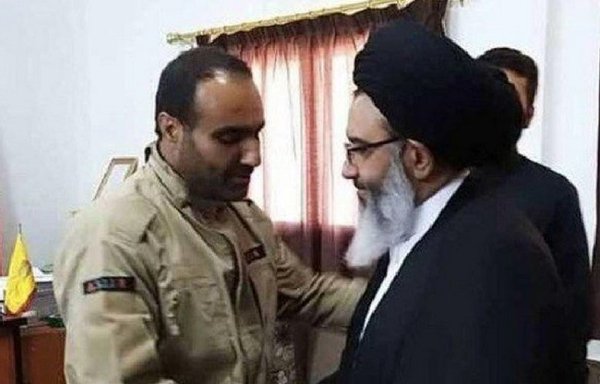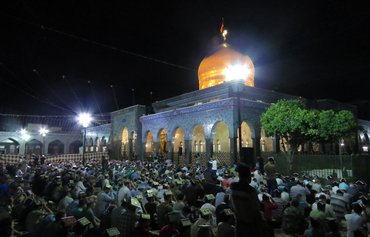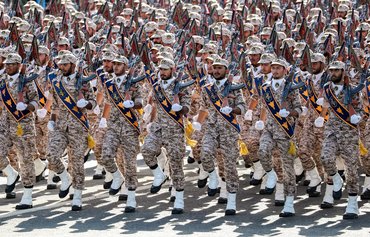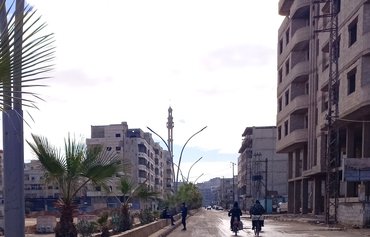The assassination of an Islamic Revolutionary Guard Corps (IRGC) commander near Damascus confirms the Iranian presence in a strategic area of Syria where the Islamic Republic seeks to establish control, an analyst said.
IRGC commander Brig. Gen. Farhad Dabirian was shot dead Friday (March 6th) in the vicinity of the mosque and shrine of Sayyida Zainab in southern Damascus, the Syrian Observatory for Human Rights said.
The Observatory described his death as an "assassination" but did not suggest who was responsible, AFP reported.
Iran's Fars news agency claimed that Dabirian, who had been tasked with guarding the Shia shrine, had been "martyred".

IRGC commander Farhad Dabirian is seen here with Hizbullah chief Hassan Nasrallah in a photo carried by Fars News Agency.
Iranian affairs specialist Sheyar Turko told Diyaruna that Dabirian was "one of the most prominent Iranian officers in Syria, and was directly supervising one of the most important religious sites, namely Sayyida Zainab".
This nominal guardianship of sites of religious significance is one of the pretexts the IRGC has used to interfere in Syria under the guise of protecting them, he said.
The IRGC's real agenda
According to Turko, the slain IRGC commander had been co-ordinating operations between IRGC-affiliated militias, particularly the Zainabiyoun brigade (made up of Pakistani nationals) and Lebanon's Hizbullah -- the most prominent in this area.
He noted that "protecting the shrines" is only a cover that hides the real reason for the IRGC's presence in Syria, and in Damascus in particular.
"The IRGC's real agenda is to deploy in key areas of Syria to establish control and ensure its continued presence," he said.
Its ultimate goal is to establish a link to Iraq on one side and Lebanon on the other, he explained, in order to establish a land route linking Tehran to Beirut and thereby giving Iran access to the Mediterranean Sea.
To ensure the success of this plan, he said, the Iranian military presence will remain in Syria, and specifically in the Damascus area.
This is because southern Damascus is a strategic area that allows movement within the capital as well as south of it, all the way to the Qalamoun and border area between Lebanon and Syria, he said.
This is necessary to secure illegal border crossings, he said, which allow IRGC and Hizbullah commanders and elements to move freely between the two countries, and enable the continued flow of weapons to Lebanon.

![IRGC commander Brig. Gen. Farhad Dabirian was shot dead in southern Damascus on March 6th. [Photo via Fars News Agency]](/cnmi_di/images/2020/03/10/22903-IRGC-Farhad-Dabirian-600_384.jpg)






